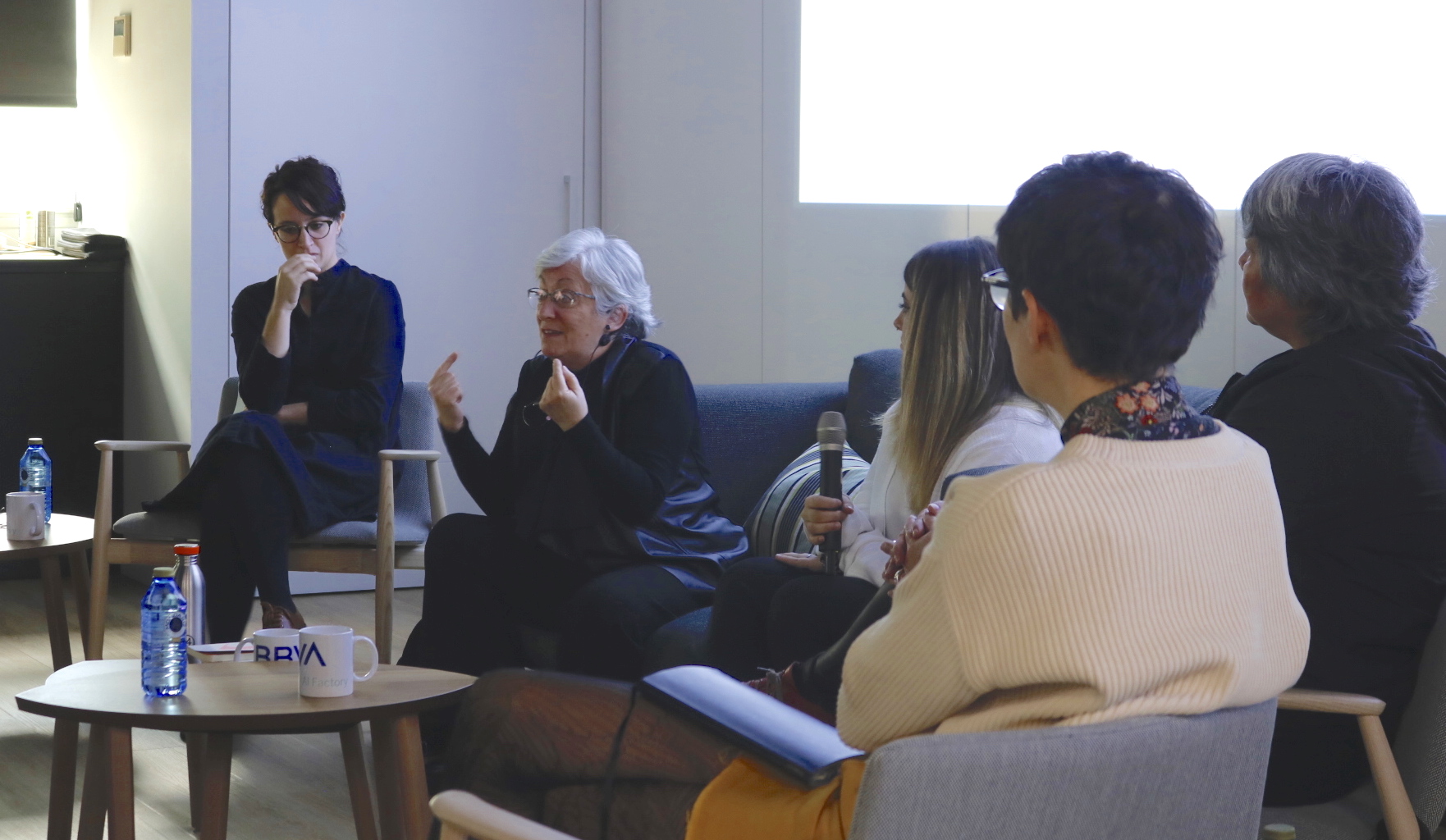
Diversity and inclusion as a policy decision
In the science and technology sector we see an undeniable reality: there is still a shortage of women to balance the gender gap. This is an objective and, in the vast majority of companies in the sector, a fact that can be mesured. Even though at BBVA Data & Analytics (now, BBVA AI Factory) we have a clear commitment to diversity and inclusion, it is also still affects us directly.
Faced with this reality, corporations and other players involved can make the decision to address the issue and whether or not to introduce change. From our point of view, besides believing that we are facing a reality that can be changed, going for diversity is useful and beneficial for our business. Apart from the value of integrating the diverse reality of the world we live in into our work environment, to have more diverse teams helps us produce higher quality work. This, in turn, allows us to reduce the risk of incorporating biases into our algorithms or designing our data engines with different perspectives in mind.
All the above reasons make it clear why BBVA Data & Analytics wishes to focus on inclusion i.e, generate an environment in which women are and feel systematically part of all processes and levels, thus making the value of gender diversity effective and tangible. It is clear that the first step is to incorporate more women into a sector in which men still form the vast majority. According to Eurostat data for Spain in 2017, only 15.6% of Information and Communication Technology (ICT) professionals are women. The term ICT used by the Statistical Office of the European Union (Eurostat), takes into account a narrower perspective of the STEM field (science, technology, engineering and mathematics), since it eliminates references to health, biological and related sciences. However, the ICT and digital field, include studies in mathematics, statistics, computing, engineering, mechanics, chemical and physical sciences and information and communication technologies.

In our particular case, in addition to being exposed to the situation in the field of science and technology, we have to take into account another aspect: our sector of activity. Banking has been -and still is today- a very masculine field, especially in decision-making positions and in central areas of the business, such as investment banking, finance or risk management. Nevertheless, as in all sectors, this is increasingly changing. This, combined in some cases with previous work experience in the sector, may lead to certain biases or impressions that prevent more women from seeing banking as a sector for professional development.
This is the situation related to us by a colleague from BBVA Data & Analytics, who, despite having all the knowledge and skills to carry out her work in the company, decided not to apply for one of our positions due to biases related to the sector and previous work experience. However, the procedure followed by BBVA Data & Analytics, which consists of specifically looking for women and developing a strategy of closeness and transparency in our selection processes, made this co-worker finally decide to join us. In this sense it was a case of combating the biases and preconceived impressions that made her reject the position in the first place.
In general, most candidates who apply for an open technical position at BBVA Data & Analytics are men (in some cases, they represent up to 90% of applications). In view of this situation, the steps we follow consist of proactively contacting profiles of women who meet the required knowledge and skills, to include them in the final list of candidates -so that we have a balanced list of men and women- and, from here, start with the selection process. We understand that in a selection process both parties are equally interested. This is why, apart from the tests of technical knowledge and skills, we try to develop a communication strategy with the candidate focused on the management of expectations, transparency and the transmission of our culture and values.
Thus, we have recently been able to incorporate more women into BBVA Data & Analytics, which now accounts for almost one in three data scientists (31.3%). When we add it the rest of the company positions, they represent 28.8%. These figures are six points higher than last year, when they accounted for 22.9% of BBVA Data & Analytics.
These actions are necessary to promote diversity, but it is also true that it is only the first step towards achieving true inclusion, which we will achieve when women are able to carry out any task on equal terms, especially those involving team leadership and decision-making. And here we can work on a multitude of initiatives as part of the company’s corporate culture.
Through our experience, we know that some key aspects on which to focus are related to improving confidence in the skills and work performed; the implementation of the culture of debate and autonomy as a method for providing diverse solutions; responsible leadership or celebrating diversity. Then there are other aspects that require more direct actions such as flexibility at work or conciliation. Actions as simple as eliminating dress code -both formally and informally- can have an important impact insofar as they prevent a forced positioning according to hierarchy, gender or professional profile, as well as adapting the text of job offers using inclusive language, for example.
On the other hand, certain initiatives that are beneficial to everyone, such as mentoring or coaching programs, are very appropriate because they address issues such as determination and confidence at work, measuring the value contributed or examples and empowerment which come from admired professionals. This is in addition to addressing the so-called “soft skills”, which are often undervalued, but necessary for work performance. And also, of course, to adopt a corporate culture that favors women to reach positions of responsibility and decision making. This is something we are focusing on at BBVA Data & Analytics, where 80% of managers with subordinates are still men. As Vernā Myers, Vice President of Netflix says, “diversity is being invited to the party, inclusion is being asked to dance“.